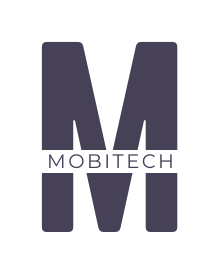SEO VS PPC : Introduction
Search engine optimization (SEO) and pay-per-click advertising (PPC) are two of the most popular digital marketing strategies used by businesses today. In this article we are going to discuss SEO VS PPC. Both SEO and PPC have the potential to drive traffic and increase revenue, but they operate in different ways and offer unique advantages and disadvantages. Understanding the differences between SEO and PPC is essential for any business owner or marketer looking to make informed decisions about their digital marketing efforts. In this blog post, we will explore the key differences between SEO and PPC, their respective benefits and drawbacks, and how to determine which strategy is best for your business. Whether you’re new to digital marketing or a seasoned pro, this post will provide you with valuable insights into the world of SEO and PPC.
SEO VS PPC : Benifits
SEO Benefits:
Increased organic traffic:
One of the primary benefits of SEO is that it can help increase organic traffic to your website. By optimizing your website for search engines, you can improve your website’s visibility in search results, making it more likely that users will click through to your site.
Better user experience:
SEO involves optimizing your website for both search engines and users. This means improving site navigation, page speed, and overall user experience, which can ultimately lead to increased engagement and conversions.
Long-term results:
Unlike PPC, which requires ongoing investment, SEO efforts can lead to long-term results. By building a strong foundation of optimized content and site structure, you can maintain or improve your search engine rankings over time.
PPC Benefits:
Immediate results:
One of the primary benefits of PPC is that it can generate immediate results. By bidding on targeted keywords, you can place your ads in front of users who are actively searching for your products or services, driving immediate traffic to your website.
Targeted audience:
With PPC, you can target your ads to specific demographics, locations, and even device types. This allows you to reach the right audience with the right message at the right time.
Measurable results:
PPC provides detailed analytics and reporting, allowing you to measure the success of your campaigns in real-time. This allows you to adjust your campaigns on the fly, optimizing for better performance and return on investment.
SEO VS PPC : Disadvantages
Disadvantages of SEO:
Time-consuming:
SEO is a long-term strategy that requires ongoing effort and investment. It can take months or even years to see significant results, and it requires constant monitoring and optimization.
Unpredictable results:
While SEO can lead to long-term success, it’s also unpredictable. Search engine algorithms can change at any time, causing fluctuations in search rankings and traffic.
Requires technical expertise:
SEO involves a wide range of technical skills, including website design, content creation, and link building. It can be challenging for businesses without in-house expertise to implement a successful SEO strategy.
Disadvantages of PPC:
Requires ongoing investment:
Unlike SEO, which can lead to long-term results, PPC requires ongoing investment to maintain ad placement and generate traffic. Once you stop paying for ads, traffic will drop off.
High competition:
PPC can be highly competitive, particularly for popular keywords. This can drive up costs and make it difficult to achieve a high ad placement.
Ad fatigue:
Users can become fatigued by seeing the same ads repeatedly, leading to lower click-through rates and reduced effectiveness over time.
Tips to Hire SEO or PPC agency in Singapore
Hiring a reliable PPC or SEO agency in Singapore can be a daunting task, but there are several steps you can take to find a trustworthy and competent agency. Here are some tips to help you:
Research:
Start by researching different SEO and PPC agencies in Singapore. Look at their websites, case studies, and client reviews to get an idea of their services and reputation.
Experience:
Look for an agency with a proven track record of success. Check their portfolio to see examples of their work and make sure they have experience in your industry.
Expertise:
Ensure that the agency has expertise in both SEO and PPC. You want an agency that can provide a comprehensive digital marketing strategy that includes both organic and paid search.
Transparency:
Look for an agency that is transparent about their services, pricing, and reporting. They should be willing to share their methods and results with you.
Communication:
Communication is essential when working with an agency. Make sure they are responsive to your questions and concerns and have a clear communication plan in place.
Budget:
Determine your budget and make sure the agency you choose can work within your budget.
Personal touch:
Choose an agency that takes the time to understand your business, target audience, and goals. You want an agency that can provide customized solutions to meet your specific needs.





